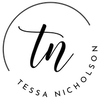Do Detox diets and cleanses really work?

Updated July, 2020
On January 5 I held a presentation titled Understanding Detoxification. Given the popularity of the topic and the time of year, I suspected I would get a decent turnout. I was not disappointed.
As the registration process began people kept commenting on how badly they needed a detoxification protocol, not uncommon after the Christmas and New Year festivities.
As the presentation evening approached I started getting nervous because I had no intention of talking about detoxification protocols, kits, cleanses, fasting or special drinks(other than drinking plenty of pure water) as a means of achieving the ultimate detox!
What I really wanted to talk about was how the body performs the detoxification process naturally, on a regular basis and the type of nutrition and lifestyle strategies that support the body systems that perform the process. In fact, if toxins actually accumulated in the body we would have all suffered a rather unpleasant fate or require serious medical intervention.
I also thought it important that people understand that toxins are not just something “out there” and that we, through our normal state of metabolism generate toxins-yes, really!
External toxins in the form of environmental toxins, pollution, heavy metals, pesticides, herbicides, chemicals and additives in foods, personal care and household cleaning products and other harmful compounds are indeed a cause for concern and are best avoided.
Is a cleanse or a detox more effective at eliminating toxins than our liver, kidneys, digestive system, skin and lungs? There is no solid evidence that supports this claim.
The best thing to do is keep these organs of elimination healthy and allow them to do the work they are so elegantly designed to do.
For most people that’s about as exciting as the old adage eat well and exercise. I did not have a magic bullet, but that’s the truth when it comes to detoxification. Just ask Timothy Caulfield, Canada Research Chair in Health Law and Policy at the University of Alberta and the Author of two books: The Cure for Everything, Untangling the twisted messages about health fitness and happiness and Is Gwyneth Paltrow Wrong About Everything?: when celebrity culture and science clash.
Mr.Caulfield has spent many years studying the impact of celebrity culture on our health decisions and according to his research many of the evidence free health trends would not have become billion dollar industries without celebrity endorsements and that includes detoxification.
The reality of it is that achieving and maintaining good health requires a sustained and continuous effort and your body will reward you by functioning optimally. Over indulging during holidays, celebrations and special events does not mean all that good work is undone; your body will remind you through some unpleasant responses that there is a better way.
As for detoxification the debate goes on. For me the evidence is not very convincing. I’m sticking to the old adage of eat well (which also seems confusing to most people) and exercise.
Here are some simple tips to support your body’s detoxification process:
- Eat real food and enjoy foods in their natural state. Focus on fruits and vegetables as they play a major role in a health body and contain compounds that help the body deal with ingested chemicals. Foods that stimulate or contain the antioxidant Glutathione, which heavily involved in the detoxification function. In fact , Glutathione is recognized as our master antioxidant.
- Take a break between meals. This allows your body to digest more completely and helps the body perform, what I call it’s “scavenger duties” (clean up of stored toxins). This is particularly effective during the overnight fast-meaning when we are asleep.
- Move, get some exercise and sweat. Our skin is a major elimination organ.
- Get enough quality sleep to support the brain’s detoxification system. Poor sleep has also been linked to short and long term health consequences such as obesity, stress, high blood pressure and type 2 diabetes
- The kidneys are a major elimination organ, support them with plenty of hydrating fluids including pure water.
- Be aware of food allergies and note any food intolerances. This can impair digestion and disrupt nutrient uptake.
- Limit alcohol.
- Take care when choosing personal care and household cleaning products. The chemicals used in many of these products are absorbed through the skin and inhaled by the lungs and contribute to our toxic load.
- Remember to breathe!

